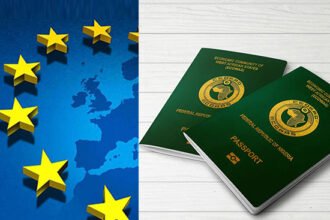For non-EU nationals looking to settle in Europe, obtaining a long-term residence permit is a significant milestone. These permits allow third-country nationals (TCNs) to live, work, and access social benefits in their host countries under conditions similar to those of EU citizens. While the EU Long-Term Residence Directive (2003/109/EC) sets minimum requirements for these permits, each EU member state implements its own version, often with additional national rules.
This article provides a country-by-country comparison of long-term residence permits in the European Union (EU), highlighting key differences in eligibility, rights, application processes, and renewal conditions.
Understanding EU Long-Term Residence Permits
What is an EU Long-Term Residence Permit?
The EU long-term residence permit is a status granted to non-EU nationals who have legally resided in an EU member state for a continuous period (usually five years) and meet certain integration and financial requirements. It provides:
-
The right to live and work in the granting country indefinitely.
-
Limited mobility rights within the EU.
-
Access to education, healthcare, and social benefits under similar conditions to EU nationals.
General Eligibility Criteria Across EU Countries
Most EU countries follow these common criteria:
✔ Continuous legal residence for at least five years.
✔ Stable and regular income (to prove financial self-sufficiency).
✔ Health insurance covering major medical costs.
✔ Integration requirements, such as language proficiency or civic knowledge (varies by country).
✔ Clean criminal record.
However, individual countries add their own conditions, making the process and rights associated with long-term residence different across the EU.
Comparison of Long-Term Residence Permits in EU Countries
Each EU member state has specific rules for obtaining and maintaining long-term residence permits. Below is a comparison of how different EU countries handle these permits.
1. Germany: Niederlassungserlaubnis (Settlement Permit) & EU Long-Term Residence
-
Residence Requirement: 5 years of continuous residence (exceptions for skilled workers and refugees).
-
Income Requirement: Proof of stable income and pension contributions.
-
Integration: German B1 language certificate and basic civic knowledge.
-
Rights: Unlimited work rights, access to social security, and can apply for German citizenship after additional residence.
-
Mobility: Can move to another EU country but must apply for a separate residence permit there.
2. France: Carte de Résident de Longue Durée – UE
-
Residence Requirement: 5 years of legal residence (exceptions for family members of French citizens).
-
Income Requirement: Stable resources above the minimum wage (SMIC).
-
Integration: French A2 language requirement and proof of integration.
-
Rights: Allows work in France but does not automatically allow work in other EU states.
-
Renewal: Valid for 10 years, renewable.
3. Italy: Permesso di Soggiorno UE per Soggiornanti di Lungo Periodo
-
Residence Requirement: 5 years of legal residence.
-
Income Requirement: Minimum annual income equivalent to social allowance.
-
Integration: Italian A2 language requirement and passing an integration test.
-
Rights: Free access to healthcare and social services, right to work in Italy.
-
Renewal: Indefinite validity, but needs to be updated if passport details change.
4. Spain: Tarjeta de Larga Duración UE
-
Residence Requirement: 5 years of continuous legal residence.
-
Income Requirement: Stable and sufficient income.
-
Integration: No language test required, but proof of economic and social integration.
-
Rights: Work authorization in Spain and limited access to employment in other EU states.
-
Renewal: Indefinite, must be renewed every five years for documentation purposes.
5. Netherlands: EU Long-Term Residence Permit
-
Residence Requirement: 5 years of legal residence.
-
Income Requirement: Proof of sufficient and stable income.
-
Integration: Dutch A2 language test and knowledge of Dutch society.
-
Rights: Full access to employment and social benefits.
-
Renewal: Permit is indefinite, but must be updated every five years.
6. Sweden: Permanent Residence Permit
-
Residence Requirement: 4 years for refugees, 5 years for others.
-
Income Requirement: Proof of self-sufficiency through employment or other means.
-
Integration: No official language requirement but must show active participation in society.
-
Rights: Permanent work and residence rights, access to healthcare and education.
-
Renewal: Not required unless circumstances change.
7. Austria: Daueraufenthalt – EU (Permanent Residence – EU)
-
Residence Requirement: 5 years of continuous residence.
-
Income Requirement: Proof of stable income without reliance on social assistance.
-
Integration: German B1 language requirement and basic civic knowledge test.
-
Rights: Right to work and live indefinitely in Austria, limited EU mobility.
-
Renewal: Indefinite but needs renewal for documentation every 5 years.
8. Belgium: Residence Permit Type B (Long-Term Residence Permit)
-
Residence Requirement: 5 years of uninterrupted legal stay.
-
Income Requirement: Proof of financial independence.
-
Integration: Proof of social integration through work, study, or language courses.
-
Rights: Full access to employment and social security benefits.
-
Renewal: Permit is valid indefinitely but must be renewed for administrative purposes.
9. Poland: Long-Term EU Residence Permit
-
Residence Requirement: 5 years of legal residence.
-
Income Requirement: Proof of stable income and housing.
-
Integration: No formal language test, but knowledge of Polish society helps.
-
Rights: Can live and work in Poland but must apply separately for residence in other EU states.
-
Renewal: Indefinite, but must be updated when the passport expires.
10. Portugal: Autorização de Residência de Longa Duração
-
Residence Requirement: 5 years of legal residence.
-
Income Requirement: Stable financial means.
-
Integration: Basic Portuguese language test (A2) required.
-
Rights: Work authorization and access to social benefits.
-
Renewal: Every 5 years.
Key Differences Across EU Countries
1. Language and Integration Requirements
-
Strictest: Germany, Austria, Netherlands, and Portugal (require formal language certification).
-
Moderate: France, Italy (basic language and integration proof).
-
Easiest: Spain, Sweden, and Poland (little or no language requirements).
2. Rights in Other EU Countries
-
Most Flexible: Germany, Belgium, and Netherlands (easier access to work in other EU states).
-
Least Flexible: Spain, Italy, and Poland (residents must reapply for residence in another EU country).
3. Renewal and Validity
-
Indefinite but needs renewal every 5 years: Austria, Belgium, Netherlands, Spain, Poland.
-
10-year renewable permits: France, Italy.
Conclusion
Long-term residence permits in the EU offer non-EU nationals stability, security, and near-equal rights to citizens of their host countries. While the EU Long-Term Residence Directive sets the framework, each country enforces its own rules, creating significant variations in eligibility, benefits, and renewal processes.
When choosing an EU country for long-term residence, language requirements, employment opportunities, and mobility rights within the EU should be key considerations. With careful planning and compliance with national regulations, obtaining long-term residence in the EU can open doors to greater stability and, eventually, citizenship opportunities.


